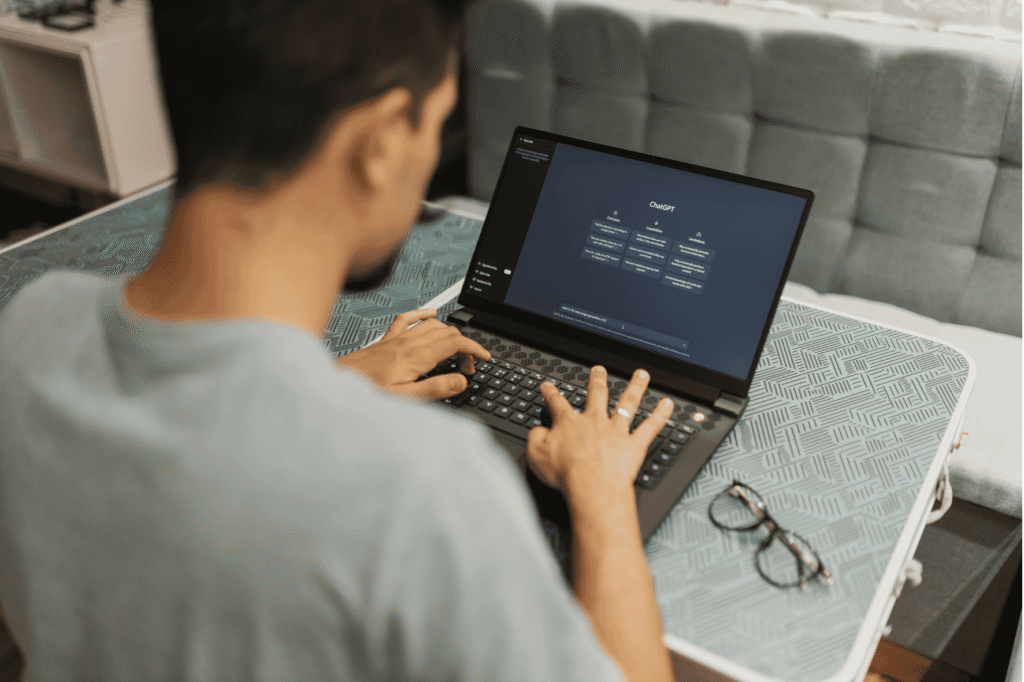Can AI Replace a Therapist?
Why Youngsters Should Be Careful

In today’s digital age, AI chatbots are everywhere—from helping with homework to answering medical questions. Many youngsters are now turning to AI for emotional support—using it like a therapist.
But here’s the big question: Can AI truly replace human therapy?
The short answer:
No. And relying on it too much can be harmful.
Why Youngsters Get Hooked on AI Therapy
- Instant response: Unlike friends or family, AI replies immediately, day or night.
- Non-judgmental space: Teens feel safe sharing without fear of criticism.
- Accessibility: It’s free (or cheaper) than traditional therapy.
- Curiosity and novelty: AI feels futuristic and exciting, making it attractive to explore emotions with.

This combination can create a cycle—teens feel sad, turn to AI, get comfort, repeat. Over time, they depend on it for every emotional struggle.
Disadvantages of Using AI as a Therapist
- Lack of human empathy: AI can mimic words, but it cannot feel emotions or understand context deeply.
- Misses hidden warning signs: A therapist can notice tone, facial expressions, or body language—AI cannot.
- Generic responses: AI gives patterns of advice, not personalized strategies for unique situations.
- No crisis intervention: In cases of suicidal thoughts or trauma, AI cannot step in with real-time emergency support.
- Dependency risk: Teens may stop reaching out to real people, increasing isolation.
A Scenario: How It Can Go Wrong
Ravi, a 19-year-old college student, felt lonely after a breakup. Instead of talking to friends or family, he started chatting with an AI app daily.
- At first, it felt supportive.
- Over time, he stopped confiding in real people.
- When his sadness deepened into suicidal thoughts, the AI kept suggesting “self-care routines” but couldn’t recognize the crisis.
By the time he finally sought professional help, his depression had worsened.
Why Therapy with AI is Dangerous
- Creates false safety: AI feels supportive but can’t replace trained judgment.
- Delays professional care: Teens may think, “I already have support,” and avoid therapy.
- Reinforces avoidance: Instead of practicing real conversations, they retreat into screens.
- Privacy concerns: Not all AI apps guarantee data confidentiality.
Coping Strategies for Youngsters
- Journaling: Writing feelings down builds self-reflection without dependency.
- Peer and family support: Talking to trusted people builds real bonds.
- Professional therapy: A counselor or psychiatrist provides evidence-based help.
- Mindfulness & physical activity: Exercise, meditation, and hobbies regulate mood.
- Limit AI use: Use it for learning, not as your only coping tool.
What You Should Do Instead of relying on AI for Therapy
- Use AI as a complement, not a replacement: It can give information, but not treatment.
- Seek human connection: Confide in friends, family, or mentors.
- Get professional help early: Therapy and counseling are tailored to your story.
- Build offline coping skills: Sport, art, music, nature—real experiences heal in ways screens cannot.
FAQs
Q1: Is it bad to ever talk to AI about feelings?
Not always—it can help organize thoughts. But don’t rely on it as your only support.
Q2: Why do teens prefer AI over real people?
Because it feels safe and instant. But this safety is artificial—it lacks real empathy.
Q3: Can AI recognize suicidal thoughts?
It may detect certain words, but it cannot intervene or replace a crisis helpline.
Final Thoughts
AI is powerful—but it’s not a therapist. It can provide information, reflection, even short-term comfort, but it cannot replace the warmth, intuition, and responsibility of a human therapist.
Overreliance on AI for therapy is like using a mirror to fix a broken bone—it shows you something, but it can’t heal you.
If you—or your teen—are struggling with emotional issues, don’t rely solely on apps or AI.
📞 Call 9986636216 to book a confidential consultation at Akshaya Medical Centre.
🌐 Professional therapy is not just about listening—it’s about guiding you through change, safely and effectively.
Remember: AI can assist, but healing happens through human connection.

